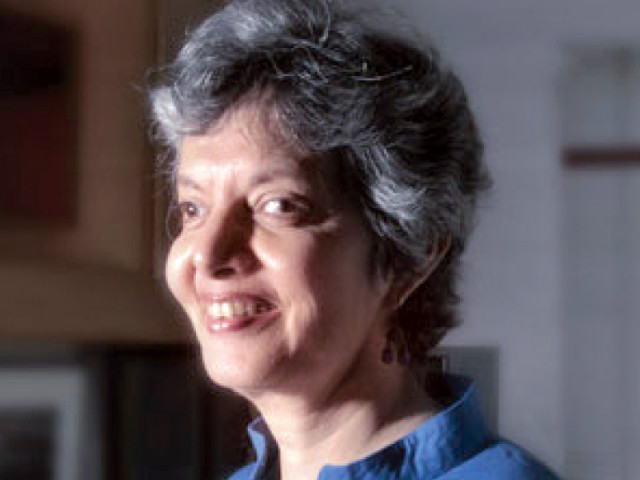Activists under fire: In Pakistan, doing good often carries serious risks
Jirga declares Sikander a karo for helping out an abused woman in need.

“There are threats from militants, security agencies, feudals and several other quarters,” says HRCP chairperson.
Sikander Ali Bhutto, a human rights activist from Daharki, Ghotki, is still dumbfounded by when and how he was labelled a karo or ‘adulterer’, destined to die.
All he did was help Shahnaz stand up to her husband, a task that fell within the realm of his job responsibilities.
Sikander couldn’t save her. Two months ago, Shahnaz was killed allegedly by her husband, Rano, and her in-laws in the village.
Now, he is having trouble saving himself. A jirga has declared him karo, and Shahnaz kari, even though they were not involved at all.
“All I was doing was trying to save her. I never thought the clan would accuse me of having an affair with the woman,” exclaims Sikander nervously in a relative’s drawing room in Karachi. “They wanted to feed me and my family to wild dogs.”
He is right to be nervous. In recent months, aiding survivors and doing social work has become increasingly dangerous. In Karachi, for example, polio vaccinators and other NGO personnel have been kidnapped, beaten, even killed by extremists. In Sindh’s countryside, the feudal lords and other influential men have targeted human rights defenders time and time again.

Sikander, who is the Ghotki coordinator for the Human Rights Commission of Pakistan (HRCP), has now run away from his hometown, taking his family along with him. He spends his days moving from one relative’s house to another.
“I was declared karo by the community because they were angry I highlighted her case. In that ignorant environment, a man feels that he can get away with anything with his wife. All I did was support the woman and expose her husband’s wrong doings,” he says.
Shahnaz’s husband took her jewellery and flat in Karachi. She was unwilling to give up her only remaining property, a house in Daharki, as she wanted as a security blanket for her children. When her husband beat her to try to wrest ownership, she held a press conference and demanded police protection. Sikander reports for a local wire agency and, along with other journalists, gave the issue coverage they felt it deserved. Additionally, as part of the HRCP, he assisted her in filing a case against her husband.
However, none of that helped. In December 2012, Shahnaz’s husband and in-laws pumped four bullets into her and snatched her property.
Nonetheless, perhaps because of Sikander’s assistance and press coverage, action is being taken. A case has been registered by Shahnaz’s brother, Abdul Fateh, and the investigation officer at the Daharki police station, Sardar Ahmed Kolachi, has arrested her husband.
And yet, Fateh is also facing death threats. He has shut down his house and moved to another village, taking along Shahnaz’s three children with him.
“My sister was killed and I’m still being harassed. Sikander is being involved for no reason. He was just helping my sister. None of them had bad characters,” says Fateh. “Sikander, at least, should be provided protection by the government.”
The police have not taken action against the jirga that issued threats to Sikander. Furthermore, out of the nine men accused of involvement in Shahnaz’s murder, only two have been arrested.
“I have gone to the Sindh High Court demanding protection from the police. I also want an FIR to be registered against all those who are threatening to kill me,” says Sikander.

In the middle of the conversation, the sound of gunfire nearby causes him to fidget involuntarily. “I am scared to go out,” he whispers. “I feel that I may be murdered under the pretence of a ‘targeted’ killing.”
These stories surface across Sindh. In Tharparkar, Pardeep Kumar is also bearing the brunt of being a human rights activist. In the process of trying to get justice for victims of land grabbing, his own land has been taken over by some influential men from the area.
“My own property has been encroached on, and there has been an attack on my son. Yet I can’t or say anything because I fear more deadly consequences,” says Kumar over the phone. “The police are not registering an FIR as an influential is involved. Activists or no activists, everyone is helpless at the hands of these powerful people.”
HRCP chairperson Zohra Yusuf admits times have become difficult for human rights defenders. The organisation, itself, has lost three activists in recent months, two in Balochistan and one in Khyber Agency.
According to her, feudalism is strong in Sindh, and the state has been ineffective in providing protection. The HRCP has contacted top police officers for Sikander’s safety.
“There are threats from militants, security agencies, feudals and several other quarters,” she says. “Threats arise whenever activists expose a crime.”
Published in The Express Tribune, February 27th, 2013.



















COMMENTS
Comments are moderated and generally will be posted if they are on-topic and not abusive.
For more information, please see our Comments FAQ